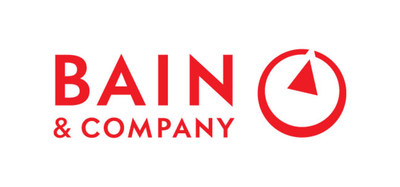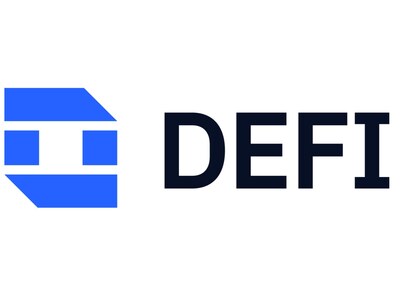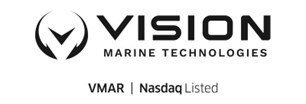Total M&A market dropped to $3.2 trillion in 2023, leaving a backlog of deals that will shape the 2024 M&A agenda
Press Releases
Jan 30, 2024
Bain & Company’s sixth annual Global M&A Report shows frequent acquirers will reap the benefits of the rebound, but they should prepare for longer, more unpredictable regulatory approval processes
BOSTON, Jan. 30, 2024 /PRNewswire/ — The total M&A market dropped 15%, to $3.2 trillion, the lowest level in a decade, as dealmakers grappling with high interest rates, regulatory scrutiny, and mixed macroeconomic signals had to be more selective about which deals to pursue in 2023. But the biggest obstacle was the gap between valuations. At 10.1 times, overall strategic deal multiples were the lowest in 15 years. Looking ahead, many of the assets that didn’t come to market last year will fuel active dealmaking in 2024. These are among the findings of Bain & Company’s sixth annual Global M&A Report.
“The drop in deal multiples led to a wait-and-see atmosphere in 2023, with many sellers hesitant to come to the table at a market bottom,” said Les Baird, partner and head of Bain & Company’s global M&A and Divestitures practice. “This year, buyers have their eyes on a growing backlog of deals. A need for liquidity will motivate some sellers, while others will divest assets while reshaping their portfolios. As interest rates stabilize, we expect the logjam in M&A markets will break. When it does, competition for assets will be significant. Winning buyers will use diligence to uncover a differentiated view on revenue and cost synergies and win the deal.”
Beneath the surface of 2023 dealmaking
Across industries, the collapse of tech M&A has been the biggest drag on strategic M&A. Tech deal values declined by roughly 45% as median valuations tumbled from 2021’s high of 25 times to 13 times in 2023. At the same time, a healthy dose of big-ticket deals supported a strong M&A year for energy and healthcare, prompted by differing sector dynamics.
Megadeals made a mark in the second half of 2023, a possible signal that dealmakers are ready to look forward. For M&A observers, the timing wasn’t too surprising. Many companies had sustained high levels of proactive deal screening and outside-in due diligence even as deal counts fell.
Finally, the year 2023 showed a widening of the gap between how frequent acquirers and their inactive peers behave in M&A downcycles. Most frequent acquirers never stop doing deals even as the market overall contracts. This is significant as Bain’s long-term research shows frequent acquirers outperform in total shareholder return and that this margin continues to grow.
“History shows that downturns and times of disruption always produce newer, stronger competitors that used the turbulence to make market gains,” said Suzanne Kumar, Bain & Company’s global practice vice president for M&A and Divestitures. “Last year’s downturn will likely be no exception, and we expect to see more deals get done in 2024—if for no other reason than there are a lot of assets that should trade. But it won’t be without headwinds. In today’s regulatory environment, with approval processes for contested deals becoming longer and less predictable, companies contemplating large, game-changing M&A must have conviction and fortitude.”
An evolving regulatory climate
At least $361 billion in announced deals were challenged by regulators around the globe over the past two years. Among the $255 billion of those deals that ultimately closed, nearly all required remedies. While most contested deals do make it to close, new research from Bain shows timelines for scrutinized deals have extended considerably. The pre-close period, that crucial and vulnerable phase between announcement and close, can stretch from quarters to years. Most deals close within about three months. But the average time to reach a regulatory outcome for scrutinized deals is now 12 months.
Meanwhile, the regulatory climate continues to evolve. For example, regulators have differentially focused on deals in technology and healthcare, given wider concerns about competition and consumer well-being in those industries. Even as the rulebook changes, companies looking for growth and transformation are staying in the M&A game. The best-prepared acquirers use extensive diligence to wrestle the deal thesis to the ground, confirming a base case with plenty of upside to withstand the twists and turns of deal approval.
Generative AI in dealmaking
Bain’s survey of more than 300 M&A practitioners shows that while only 16% are currently deploying generative AI for deal processes, 80% expect to do so within the next three years.
Early generative AI users are focused on process efficiencies in the early stages of the M&A process—idea generation in sourcing and reviewing data in diligence. A full 85% of early users report the technology met or exceeded their expectations, and 78% say they achieved productivity gains from reduced manual effort.
Practitioners are quick to point out challenges too, identifying data inaccuracy, privacy, and cybersecurity as the most concerning risks to using generative artificial intelligence for M&A. Companies that get the most out of generative AI will invest early to identify the efficiency gains that could deliver a competitive advantage today. Using it for targeted purposes now is a way of building familiarity and setting the stage for higher-impact uses in the future.
Industry perspectives
Bain & Company’s M&A Report 2024 explores trends across 14 industries and 4 regions, among them:
- Technology. These are not the best of times for tech dealmakers. Overall, tech deal volume dropped 26% in the first 10 months of 2023, and value was down by 59%, more than almost any other major industry. Despite this, deals were still getting done—more than 4,100 during the first nine months of the year, with 31 valued in excess of $1 billion. Looking ahead, Bain’s research shows the valuation gap between what tech sellers need and what buyers are willing to pay may be narrowing: 42% of tech industry practitioners saw an easing of the valuation gap as key to unlocking deal flow, and roughly 40% expect the gap will decrease next year.
- Healthcare and Life Sciences. Despite turbulence, 2023 demonstrated that the healthcare and life sciences industry can’t keep M&A on the back burner for long. Bain anticipates this trend to continue. The industry is sitting on high levels of cash—$171 billion across pharma companies, and 80% of healthcare executives predict they will do as many, if not more, deals in 2024 than they did in 2023.
- Energy and Natural Resources. After three years of steady growth, the volume of energy transition deals plateaued in the first nine months of 2023. Energy and natural resources companies are balancing deals between reinforcing the core businesses and promoting a low-carbon agenda. To strike the right balance, the best companies will take a more targeted approach to their energy transition acquisitions.
- Aerospace and Defense. In 2023, the space industry saw a string of multibillion-dollar deals announced in prior years officially close. Looking forward to 2024, we see the space industry entering a new era triggered by a higher interest rate environment, and defined by reduced costs for space access and the emergence of space as a fully contested geopolitical arena. Bain believes portfolio reshaping and lower valuations will spur M&A activity.
Editor’s Note: To arrange an interview, contact Katie Ware at [email protected] or +1 646 562 8107.
About Bain & Company
Bain & Company is a global consultancy that helps the world’s most ambitious change makers define the future.
Across 65 cities in 40 countries, we work alongside our clients as one team with a shared ambition to achieve extraordinary results, outperform the competition, and redefine industries. We complement our tailored, integrated expertise with a vibrant ecosystem of digital innovators to deliver better, faster, and more enduring outcomes. Our 10-year commitment to invest more than $1 billion in pro bono services brings our talent, expertise, and insight to organizations tackling today’s urgent challenges in education, racial equity, social justice, economic development, and the environment. We earned a platinum rating from EcoVadis, the leading platform for environmental, social, and ethical performance ratings for global supply chains, putting us in the top 1% of all companies. Since our founding in 1973, we have measured our success by the success of our clients, and we proudly maintain the highest level of client advocacy in the industry.
![]() View original content to download multimedia:https://www.prnewswire.com/news-releases/total-ma-market-dropped-to-3-2-trillion-in-2023–leaving-a-backlog-of-deals-that-will-shape-the-2024-ma-agenda-302047255.html
View original content to download multimedia:https://www.prnewswire.com/news-releases/total-ma-market-dropped-to-3-2-trillion-in-2023–leaving-a-backlog-of-deals-that-will-shape-the-2024-ma-agenda-302047255.html
SOURCE Bain & Company





